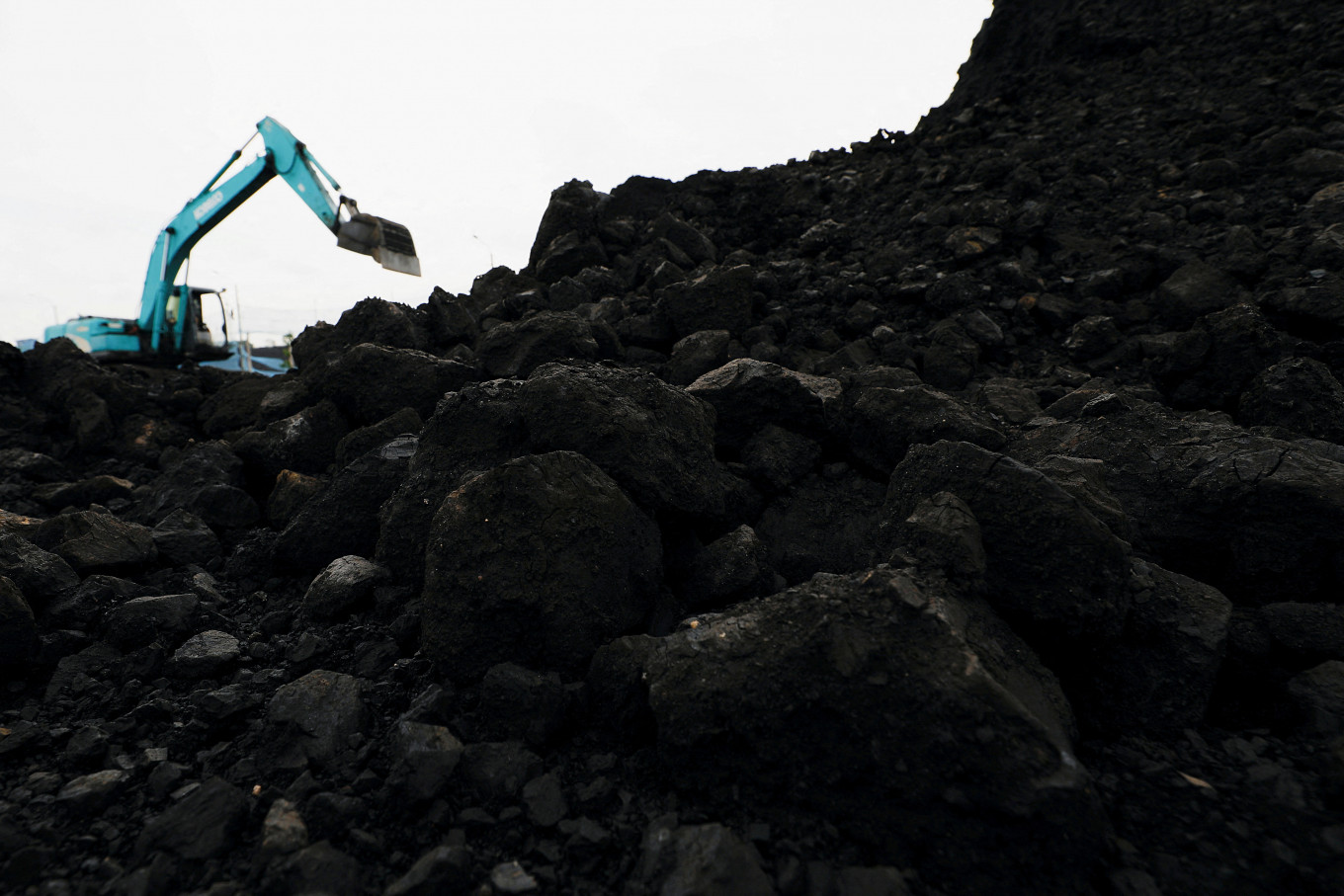Popular Reads
Top Results
Can't find what you're looking for?
View all search resultsPopular Reads
Top Results
Can't find what you're looking for?
View all search resultsCoal gasification no easy feat, say industry players
Zero-percent coal royalty may not suffice to answer Indonesia coal downstream ambitions with said there were many unnoticed challenges that the government may need to take into account.
Change text size
Gift Premium Articles
to Anyone
I
ndonesia’s plans for downstreaming coal industries have a long way to go, and a recently introduced government incentive to accelerate development is deemed insufficient by industry players, particularly those engaged in coal gasification.
On Dec. 30, President Joko “Jokowi” Widodo signed Government Regulation in Lieu of Law (Perppu) No. 2/2022, which grants companies that hold mining licenses (IUPs) or special mining permits (IUPKs) the privilege of 0-percent coal royalties if they invest in downstream industries.
However, expecting a newly born industry currently dominated by capital-intensive coal gasification activities to thrive solely on the 0-percent coal royalty is “too much”, according to Singgih Widagdo, chairman of the Indonesian Mining and Energy Forum (IMEF).
Coal gasification accounts for seven of 11 downstream projects, all of which are located in coal-rich South Sumatra and Kalimantan, data from the Energy and Mineral Resources Ministry show.
“The 0-percent royalty incentive is insufficient for contract of work [PKP2B] holders who are working on coal-to-dimethyl ether [DME] projects,” he told The Jakarta Post on Monday.
The economics of coal-to-DME processing facilities were complicated by numerous external factors, including a limited number of gasification technology owners, which were expected to affect mining firms’ capital expenditure, he explained.
“Developing such projects is no easy feat [...] and thus needs the government’s [full] support,” he said.
To accelerate downstream efforts, the government may need to consider granting market access, investment protection and import duty exemption for DME equipment, among other incentives, Singgih suggested.
Read also: Explainer: Indonesia’s push for coal downstreaming against all odds
Indonesia, which has the seventh-largest coal reserves in the world, is seeking to transform low-quality coal into value-added products, such as methanol, DME, urea and other compounds.
DME would then replace, to some extent, imported liquefied petroleum gas (LPG), Indonesia’s cooking fuel of choice, worth around US$4.09 billion in 2021
While coal gasification technology is not new, very few have ever applied the technology because of its poor economic returns.
Coal mining companies have warned that coal gasification was a very expensive undertaking and therefore asked for huge incentives to make projects feasible.
For instance, PT Bukit Asam (PTBA)’s coal-to-DME project may see the state-owned mining firm incur a $377 million loss a year, according to a 2020 report from the Institute for Economic and Financial Analysis (IEEFA).
Read also: Bukit Asam's coal-gasification project will be loss-maker: Study
Publicly listed PT Bumi Resources’ subsidiaries PT Kaltim Prima Coal (KPC) and PT Arutmin Indonesia also joined the fray with their coal-to-methanol production facilities, which are expected to produce feedstock for domestic chemical industries and biofuels that could help reduce oil imports.
“This 0-percent royalty incentive is an encouraging development, and we await details,” Bumi corporate secretary Dileep Srivastava told the Post on Monday.
Meanwhile, Association of Indonesian Mineral and Coal Energy Suppliers (Aspebindo) chairman Anggawira sees a financing squeeze as another challenge to developing the downstream coal industry.
“Financing schemes for domestic coal downstream industry development are still very limited. Not to mention the fact that the Financial Services Authority [OJK] also prohibits national banks from providing loans for coal mining projects,” Anggawira told CNBC Indonesia on Jan. 4.
Hundreds of global asset managers and large banks have announced their divestment from coal mining or coal-fired power plants, the IEEFA report found, making it increasingly difficult for coal power and mining firms to raise funds for the industry as pressure grows for firms to get on board with the energy transition.
Read also: Coal miners face financing squeeze as more banks pledge to ‘go green’
Rizal Kasli, chairman of the Indonesian Mining Experts Association (Perhapi), said on Monday that miners switching from PKP2B to IUPK were subject to the nontax state revenue (PNBP) sales of mines (PHT), which would make downstream coal projects less economically viable.
Government Regulation No. 1/2017 requires all coal and mineral mining companies seeking to continue operations in the country to convert their PKP2B permits into IUPK permits, which have a validity of 10 years and come with prerequisites including a levy on PHT and participation in a downstream project.
The government has yet to issue more detailed implementing rules for the ministerial regulation regarding types of downstream coal projects as well as requirements and procedures concerning the royalty exemption, adding uncertainty to such projects.
“The incentive is a positive [start], but it takes more [supportive regulations] to propel the [downstream coal] industry development,” Rizal told the Post on Monday.
Energy ministry special advisor Irwandy Arif explained on Jan. 4 that, to date, no companies had been granted the incentive, because none had begun commercialization.
He said the 0-percent royalty rate only applied to the amount of coal used for miners’ downstream projects.
“If a company produces a total of 20 million tonnes of coal and uses 6 million tonnes for their downstream project, only the 6 million tonnes would be exempt from the royalty,” Irwandy said in an interview broadcast live by CNBC Indonesia.










